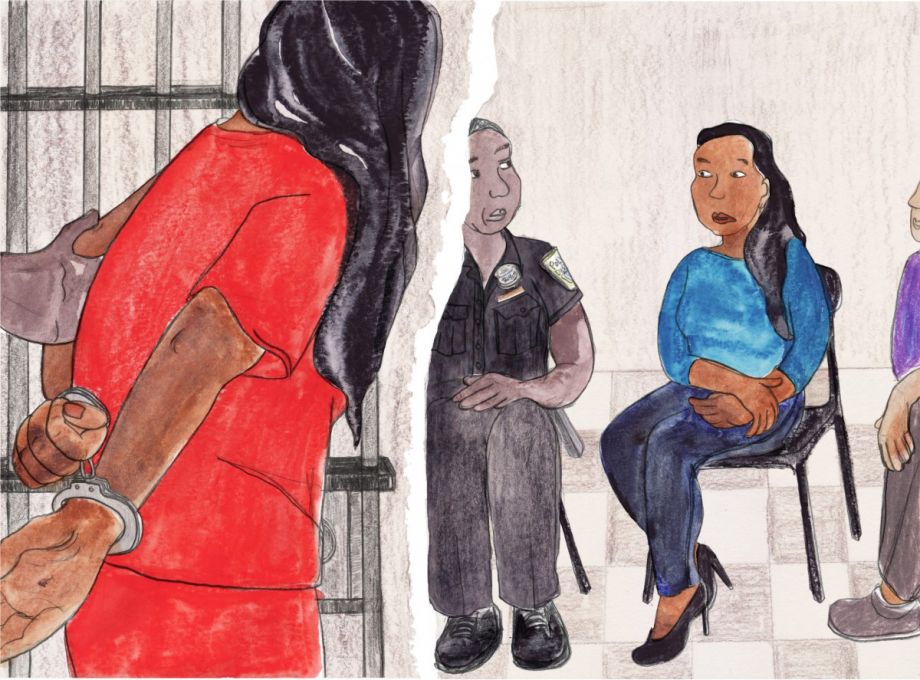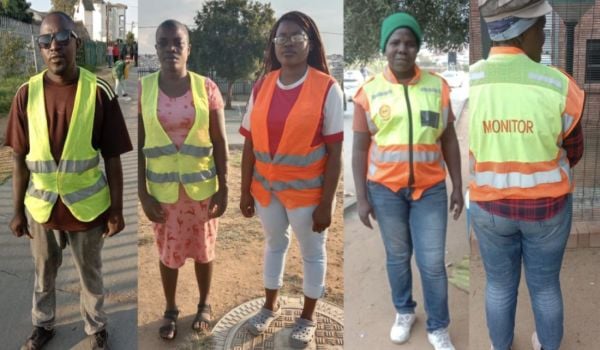In Forefront this week, Dax-Devlon Ross explores how restorative justice — which forgoes the traditional court system for a more face-to-face, victim-centered approach to having criminals account for their actions — is gradually winning over police departments in Massachusetts, and what that means for criminal justice nationwide.
Tom Rourk was out enjoying a pint at the Colonial Inn in downtown Concord, Mass. when he stepped out for a quick smoke. It was a bitter winter night, so Rourk huddled beneath a street sign. Not long afterward, an SUV sped around the corner. Rourk glanced up in time to see the barrel of a shotgun pointed in his direction. It fired and he ducked. The car sped away, but not before he got the tags. A rightfully angry Rourk called the police and within minutes, the vehicle had been stopped and the occupants — a couple of teenagers out shooting their BB gun at street signs — apprehended.
Two days later Rourk got a call from Leonard Wetherbee, then Concord’s police chief. The chief told him that he was prepared to charge the teens with multiple felonies if that was what Rourk wanted. Then he told him about an alternative restorative justice process and asked if he was interested. Rourk was still angry, but wasn’t ready to ruin two kids’ lives.
I asked him why.
“I would be able to confront them and tell them what my experience was and they would have to make restitution to the community and to me,” Rourk explained. “That was very important to me.”
A few days later Rourk got another call, this time from a non-profit called Communities 4 Restorative Justice. A volunteer explained that he would have a chance to talk to the teens who had shot at him. Sitting with the boys in a circle, he could express anything he wanted as long as it wasn’t a personal attack. As Rourk listened to the volunteer explain the process, he realized that he would have to come to terms with his own emotions about the event.
When the day finally came they all gathered — family, volunteers, the arresting officer, the two offenders and Rourk. The boys talked about having gotten the gun as a present and looking for places to play with it. Rourk told them about the terror and anger that he felt. The he talked about himself: His love of hockey, sailing and woodworking, about his time living abroad, all of which the boys found fascinating.
“I saw them come to understand what they did and how it affected all kinds of people around them,” Rourk said. “And they found out that I wasn’t a random cardboard cutout standing on a corner. They got to know me.”
As the circle continued, the family members shared their experiences as well. In particular, the mothers talked about getting a call on a winter night from the police after their sons were an hour late coming home. They were horrified, and angry.
Then the arresting officer spoke.
He talked about not knowing what to expect when he pulled them over on a dark road. All he knew was that they were armed, he was alone and he’d never done a gun arrest. He said that before he left his squad car he pulled out a picture of his two young daughters and prayed he made it home to see them. The story shook up everyone in the room. Then the officer pulled out a bullet, a real one, and told the boys his tore through bodies. None of this would have happened in a courtroom.
Early on in its experiment, C4RJ’s founders — Wetherbee and a pair of Concord activists named Joan Bell and Jean Turner — noticed something interesting. When a circle began, the police officers would be stoic. But as it progressed, they literally loosened up. They leaned in more, even opened up about their own experiences. And without fail, the officers would hand the offender a business card at the end of the closing circle. This time was no exception.
The boys wrote Rourk apology letters and were assigned community service at an organization that served mentally disabled adults. Since the incident Rourk has run into to them from time to time. They talk about what’s going on in their lives and one went on to spend the next summer volunteering at a camp for disabled youth. He discovered that was something he enjoyed doing.
“It was positive for me and I could see it was being positive for them,” Rourk said.
Police are legally required to pursue certain serious offenses to the fullest extent of the law. But the overwhelming majority of offenses for which Americans are charged, convicted and sentenced each year — stuff like breaking and entering, theft, simple assault, property damage, minor possession — doesn’t get reported to prosecutors unless a victim agrees to press charges and the police sign a complaint. If a complaint doesn’t get filed, then the case never enters the system, never appears on a record. Since the moment it was conceived back in late 1997, the idea behind C4RJ has been to divert offenses from the system before they enter.
“If you look at restorative justice as a cornerstone of the way we handle the initial phase, then over time you will have fewer people going into the system,” said Wetherbee.
To read more, subscribe to Forefront. Already a subscriber? Click here to continue reading.













